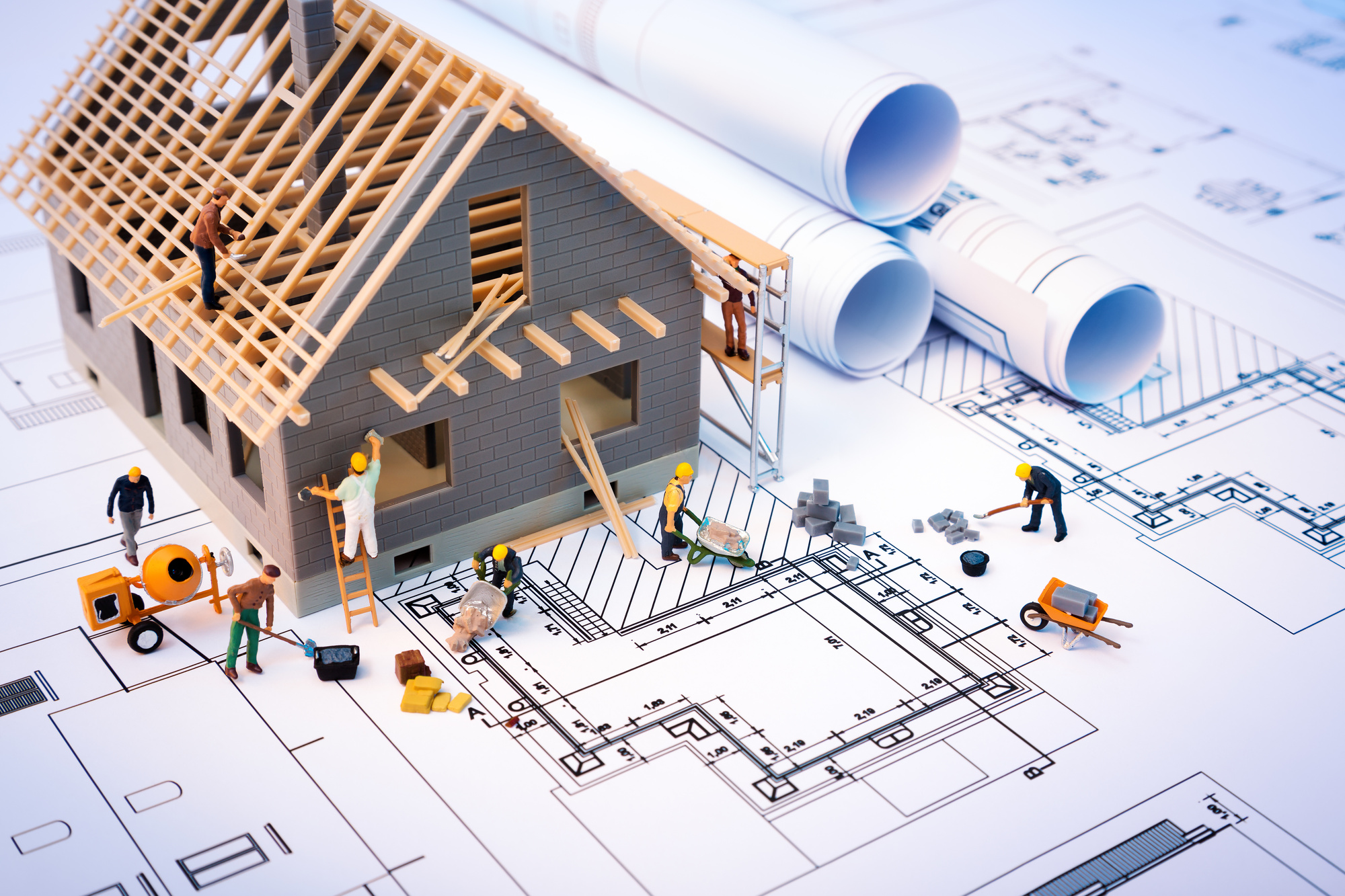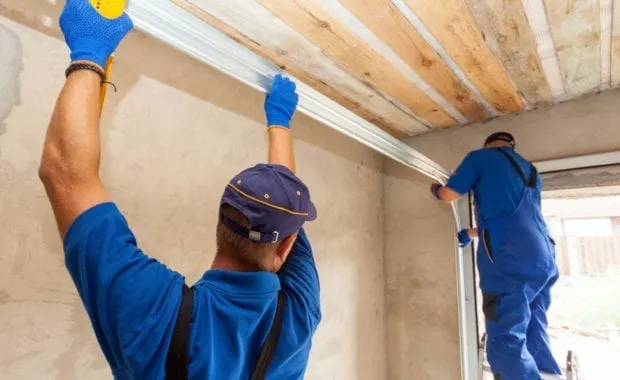A custom house is a dream for many. It’s your chance to create a space that is yours, designed to fit your lifestyle to a tee. But, the process can be daunting. Where do you start? What do you need to consider?
How can you ensure that your dream becomes a reality without any hitches? This guide will walk you through everything you need to know about building a custom house.
It will help in simplifying the process and helping you make informed decisions. Are you ready to learn all about having a new house? Then read on for more!
Contents
- 1 Deciding on the Right and Exact Budget
- 2 Choosing the Right Architect
- 3 Selecting a Reliable Builder
- 4 Designing Your Dream Home
- 5 Sourcing Quality Materials
- 6 Understanding Building Permits
- 7 Managing the Construction Timeline
- 8 Navigating Home Inspections
- 9 Ensuring Energy Efficiency in Your Custom Home
- 10 Incorporating Smart Home Features
- 11 Overcoming Common Building Challenges
- 12 Planning for Future Home Maintenance
- 13 All You Need to Know About Building Your Very Own Custom House
Deciding on the Right and Exact Budget
Before you can plan your custom home well, it is important to establish a realistic budget. Determining your budget is more than only deciding on a number. It is also about understanding how much you are comfortable and able to spend.
This includes everything from the cost of the land and design and construction. And it even covers future maintenance and unexpected contingencies. It’s crucial to break down the budget into categories.
You can sort them according to labels such as land acquisition, architectural services, and building costs. You can also use interior fittings, landscaping, and a reserve for unforeseen expenses. A well-planned budget will guide you in making decisions throughout the project.
It can also help you avoid unexpected costs and can ensure your project remains doable. Remember, creating a budget is a dynamic process; it may need adjustments as you move forward with your plans. So, it’s beneficial to review and update your budget as often as you can throughout the project.
Choosing the Right Architect
The right architect can turn your dream home into reality. Start by doing research. Look for architects with solid reputations. Check out their past work. Remember that it should align with your style. You should also read reviews and testimonials and ask for references and talk to past clients.
Confirm that they are licensed and insured. Good communication is important too. Make sure they understand your vision and budget. The right architect will be a valuable partner in your home-building journey. Their expertise and guidance can make the process smoother and more enjoyable.
Be careful in choosing and in your selection process. Remember, a good architect will not only design your home. But they will also help you navigate through the entire building process.
Selecting a Reliable Builder
Choosing a reliable builder is a critical step in bringing your dream home to life. They are the ones who will turn your vision into reality, so their skill and reliability are paramount. Look for a builder with a solid reputation, a history of quality workmanship, and a record of excellent customer service.
Research prospective builders like this luxury home builder very well by checking their previous projects. Try also reading customer reviews and even speaking and getting in contact with past clients. A competent builder should not only produce quality work.
But they will also communicate well, provide accurate estimates, and manage timelines well. And, most important of all, they will respect your budget. The right builder will value your ideas and keep you informed at every stage.
And they will commit to and deliver your project on time and within the agreed budget. It’s important to feel comfortable with your builder. Having this comfort will foster a positive working relationship throughout the construction process.
Designing Your Dream Home
Designing your dream home might be the most exciting part of building a custom house. This is the stage where your vision, needs, and preferences take shape.
You have to make sure you work very well with an architect or designer. This is because you will create a plan that suits your lifestyle, aesthetic preferences, and the characteristics of your site. Considerations should include the number and type of rooms and layout and flow.
You also need to take into account storage solutions, outdoor spaces, and even the placement of windows for natural light. Your home should be a reflection of your personality. But it also needs to be practical, functional, and comfortable for day-to-day living.
It’s essential to balance aesthetic desires with practicality. To do so, you also need to consider both current needs and future requirements. Remember, a well-designed house is not only about form but also about function. This is because it will contribute to the quality of life for those who live in it.
Sourcing Quality Materials
The choice of building materials can have a huge impact on the look, feel, durability, and even the environmental impact of your home. So, it’s important to source quality materials that align with your design, budget, and values.
These materials encompass everything from structural elements like concrete, bricks, and wood. Choosing quality materials can enhance the aesthetics of your home.
It can also help to improve energy efficiency and reduce future maintenance costs. And it can also increase the longevity and value of your house. When you are sourcing the raw materials, it also involves you considering their environmental impact. Try to ask about the sustainability of their production.
A builder with good industry connections can often provide access to a broader range of materials at better prices. So, it is very beneficial to discuss your options with them.
In the end, the materials you choose should reflect your style. And it should also meet your standards for quality and sustainability.
Understanding Building Permits
Building permits are essential components of the home-building process. They are official approvals issued by local authorities. These ensure your construction project follows building codes, zoning laws, and other regulations.
The process to secure these permits involves detailed documentation. This includes architectural drawings, engineering reports, and site plans. You will need these permits for various stages of construction. This also includes the structural, electrical, plumbing, and HVAC systems installations.
Understanding these requirements and planning for them in your timeline and budget are important. These can help save you from potential delays, penalties, and legal issues. Some builders include the management of permits in their services.
But, it is also very important to clarify this early in your relationship. Navigating the process of securing building permits can be complex. Remember that having knowledge of local regulations is invaluable in this process. So, having some form of professional guidance can be a significant asset.
Managing the Construction Timeline
Building a custom home involves many stages, each with a timeline. These stages include pre-construction design and planning, obtaining permits, and site preparation. It also includes the start of the process, like foundation work, framing, and installing systems.
Effective management of the construction timeline is very critical when you have a project. Managing this well is important and can help to ensure your project stays on schedule and within budget.
It’s also important to note that construction timelines are often subject to changes. And this can be due to factors such as weather, availability of materials, and unforeseen construction challenges.
Consistent communication with your builder is a key aspect of keeping your project on track. A well-managed timeline can reduce stress. It can also help to prevent costly delays and ensure the quality of your finished home.
Home inspections are an essential part of the home-building process. These assessments are conducted by certified inspectors. And they ensure that your home’s construction meets all local building codes and standards. Inspections often occur at different stages of construction.
This includes the post-foundation laying, after the completion of framing, and before the final handover. These inspections are crucial for identifying any potential issues or violations early. In their early identification, they can be addressed as soon as possible.
Understanding the inspection process and requirements are very important. Having these in mind can help you navigate these inspections with confidence and ease. An experienced builder can assist in preparing for these inspections. They can also help with concerns or issues that arise.
Ensuring Energy Efficiency in Your Custom Home
Incorporating energy efficiency into your custom home design can reduce your environmental footprint. On top of this, it can also save on energy costs over the long term. This involves considering the design, materials, and systems of your home.
Try considering certain design elements like orientation, insulation, window placement, and roofing materials. All these can help influence your home’s thermal efficiency and make it a cooler place to stay. Choosing energy-efficient systems like HVAC, lighting, and appliances is also crucial.
Additionally, renewable energy sources like solar panels can be a valuable addition. A well-designed, energy-efficient home not only provides comfort and cost savings. But it can also increase your property’s total value, especially if you have any plans of selling it sometime soon.
Incorporating Smart Home Features
Smart house features can play a huge role in enhancing the convenience, security, and energy efficiency of your custom home. These include home automation systems and security and surveillance systems. Energy management systems and smart appliances are also a part of this.
Home automation can allow you to control lighting, temperature, music, and even curtains with the touch of a button or voice command. Security systems like alarms, cameras, and smart locks can give you peace of mind.
Smart appliances can also offer you convenience and efficiency with your different everyday tasks. When planning for these features, consider current technology trends. Also, don’t forget to keep your budget and the compatibility of different devices in mind.
Overcoming Common Building Challenges
Building a home is a big project, and it often comes with some challenges. Delays can happen at any point and are caused by a lot of things. Material shortages might occur, and it is likely due to supply chain issues.
Cost overruns are also possible, as unexpected expenses can arise during the building process. But there’s no need to worry. All these challenges can be managed with the right approach. Good planning is the key. Start with a realistic timeline and budget.
Also, try to factor in some flexibility for possible delays or added costs. Choosing a reliable and experienced builder is another essential step. A good builder will have the experience and resources to handle the challenges that come their way.
They know how to adapt and find solutions when issues arise. Keeping an open line of communication with your builder is also important. Regular updates can help you stay on top of the project’s progress and fast address any issues.
Yes, challenges are likely to occur when building a home. But remember that with every challenge you face and overcome brings you one step closer to your dream home. With perseverance and patience, your custom home will be worth every effort.
Planning for Future Home Maintenance
Every home requires ongoing maintenance to keep it in good condition and keep its value. When building a custom home, it’s important to plan for these future needs. This includes considering the longevity and maintenance needs of your materials and systems.
Some materials, while very attractive, may need more regular upkeep compared to others. In turn, this can have a huge effect and impact on time and cost. The quality of construction can also influence future maintenance needs.
An experienced builder should provide a sound structure and quality finish. They know that it is important to do this to help lessen future issues that you might experience.
Also, including a warranty in your contract can provide protection against future issues. Effective planning can help ensure your beautiful custom home stays that way for years to come.
All You Need to Know About Building Your Very Own Custom House
Building a custom house is an exciting journey, but it requires careful planning and decision-making, from deciding on a budget to selecting a reliable builder. And from choosing materials to planning for future maintenance, each step is important.
Understanding building permits, managing timelines, and ensuring energy efficiency are crucial too. With careful planning and the right team, your dream home can become a reality. Remember, your home is a reflection of you, so make it right for your lifestyle and needs when you build a house.
For more tips and guides, visit our blog today!



